
robert bresson could have directed this film. it's so beautiful in so many ways. but he didn't. barbara loden did. in addition she wrote and starred in this film which makes this piece of enigmatic cinéma vérité even more outstanding on even more levels than it already is. sadly it's the only feature film she ever made. she died before she was able to make another. the world may well have been a different place if she'd continued with her skilful yet harshly poetic socio-political commentary.
not only is loden her own imperfect "model" portraying her protagonist, wanda, in a pseudo stream of consciousness documentative stylisation: wanda is the all knowing victim. wanda as a pre-feminist construct with shades of wim wender's jane henderson [nastassja kinski] who abandons her family to reshape her life & identity in a peep show in paris texas 15 years later.
wanda as willing vessel. wanda casually prostituting herself for a bed to sleep in, trading the only commodity she has, herself, in order to keep on moving, feeling, no matter how fuzzily. it's her own life to feel whatever whilst ironically falling into replicated relationship patterns she seeks to escape john cassavetes style... wanda as realistic anti-hero.
wanda is self-described as "being no good, the children are better off with him [her deserted husband]." her market value is limited for the era because she is arguably a bad wife and mother, the pre-feminist defining roles of womanhood. her husband in court complains that she drinks. smokes and lounges about all day without tending to dirty diapers & domestic duties. she turns up to court. late. smoking. nonchalant.
wanda is the precursor to ridley scott's thelma as she drifts embracing with reluctance submission a road trip to her compounded undoing but continues on because she's committed for the overshadowed ride. her constant is surrendered motion. her own peculiar brand of freedom. her choices are few. the bronte sisters commiserated these same issues without the benefit of 16mm film centuries earlier [wanda was shot on 16mm but later blow up to 35mm for art house showings... the imagery is very pretty as well as being an experimental faux-documentative masterpiece]. an unmarried woman with no means or dowry has little future to look forward to.
ironically loden's much overlooked masterpiece was released in 1970, the same year that germaine greer's female eunuch was first published. polarized stylistically they both still address the defining effect of social values which determine the culture which shapes womanhood and sexual roles & values in society. unconscious ideas of gender are stamped by passages of time.
wanda has a much earlier feel in terms of cultural values but as i watched completely captivated by the beautiful imagery and ideological satirical commentary there was such a disturbing familiarity which increasingly grew... although the world superficially appeared to be abstract and distant it was like entertaining view of god and watching my mother [b. 1951] act under the abusive values that housewives were indoctrinated with as a post war hangover.
the trickledown effect took a little while to distribute free love especially in wanda's pennsylvania and my mother's lyttleton, new zealand. the distance became uncomfortably less. fact transcended fiction. the mothers' daughters' inheritance lives on.
by virtue of the handheld long shots and intimacy with the camera where wanda's opening trek across the open cut coal mine mounds to procure cash from one of many random men who she sees as providers the scene embodies something as intimate as holly golightly going to the powder room but this time the prostitution is matter-of-fact unglamorous and there's no need to see a close-up physical coupling to understand wanda's subservience and abject slavery to the men throughout her journey by her own volition. neither of the players, wanda or the man who gives her money is close. in fact he encourages her to go get more money off someone else. the knowledge of her identity as collective chattel is implicit. the story of O, with less visible XXX's.
on a constant cycle of abandonment as she drinks and smokes her way through men/rides she finally lands one with some stickability, mr dennis. man as protector/provider no matter how unsuitable or undesirable. or unwilling. once warmed to the role and understanding the benefits of the odd coupling he exploits mercilessly the sexual political power which is beautifully portrayed by such gems as his unnegotiable directions to wanda: "i thought i told you to get a dress.... get in the back of the car and put it on... no slacks when you're with me, no questions, when you're with me no questions, and no hair curlers -- it makes you look cheap." and so she does, without hesitation or question...
wanda will not be burning her bra but her slacks are donated to the goodwill charity bin [by mr dennis]. he doesn't even refer to her by her name nor share his "i don't like nosy people, i don't like friendly people, don't tell me your name.." yet he steals her wallet, sucks up her identity and uses it when he acknowledges his dependency & needs to coax her to cooperate in the doomed bank heist which wanda will always assume culpability for despite the fact she is not responsible for the failure of anyone else. his much sought approval which she receives post bank manager hijack: "you did good. you're really something." is the only time he allows her to trangress from her sub-humanity.
her worthlessness will always be compounded by his and the other men's need to constantly step on her and maintain her surrender with the ongoing perception of her own inferiority. thus her role and theirs is secured. mr dennis says to her: you don't have anything, you don't want anything, you're not even worthy of being a citizen of the united states..." just like roman times with the sub class system. a woman's lot it would seem didn't alter much from early referential literature until germaine greer, adrienne rich and a bunch of middle class urban women of the haight park generation set their underwear on fire...
this film has been practically dead and buried for the last 40 years. thank you to my perceptive friend josh who convinced me that i needed to see it, the subject of his thesis in film theory, at sydney film festival. so far it's the only film i felt compelled to give five stars to and there have been some incredible films. i can't wait to read his dissertation once it's done because there's so much to say about the wonder of this wandering wanda and he will undoubtedly do it so much more succinctly yet expansively than i can here and now.



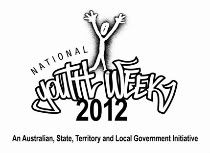
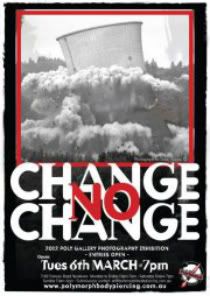




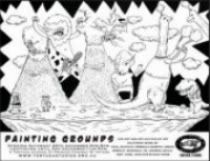
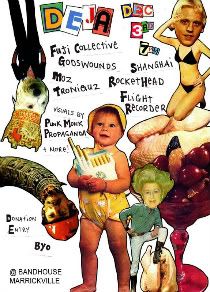


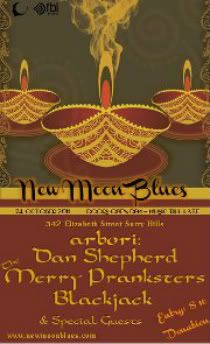
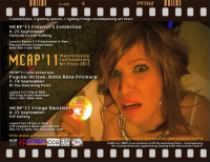






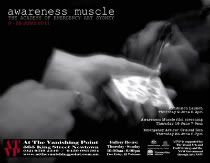
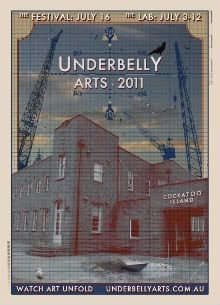














No comments:
Post a Comment